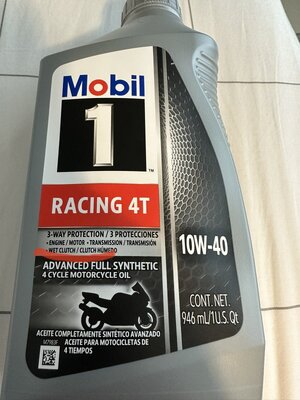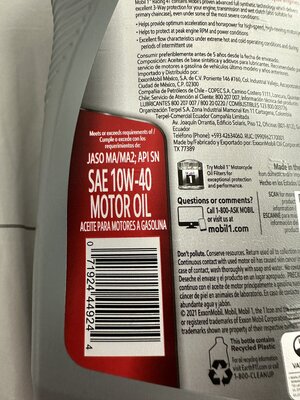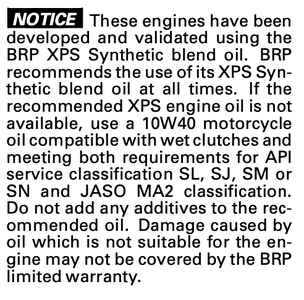A problem with using lubricants and products different from the manufacturer is that the engine and all the components are designed to use a specific oil formulation, additives, etc. While there are likely products that are better on their own merits, they are not what your ski was designed to use. In many instances, it may not make a difference and is ok, but you do need to be cautious and there is much more to oil than face values - there are additives and detergents that can make a difference too. And just because a lubricant is better on its own merits, doesn’t mean that the OE lubricant is not going to provide as good protection.
I don’t have a supercharged ski, but I know others have mentioned in other forum posts there is a certain amount of oil viscosity or resistance that the supercharger needs - which I don’t totally understand those demands. The molecular structure of synthetic lubricants are ideal to for reducing friction. But if the engine is designed for a certain amount of needed pressure or resistance, you could create an undesirable condition and then you have diagnosis challenges because you have introduced a new variable into the mix.
Many of us have automotive backgrounds, and mine is Ford. The 6.0L diesel engine was problematic for a number of reasons, but many fleet owners were using gourmet synthetic oil, thinking they were doing themselves a favor. The injectors use oil pressure to fire, and to make a long story short, the lesser expensive Motorcraft oil that the engine and all components were designed to use provided the best and most reliable performance. Many issues were resolved with just using Motorcraft oil. Fewer driveability issues, better reliability, and it was the additive package, detergents, and semi synthetic oil that was more reliable for that particular engine. Just an example of a better oil isn’t really always better. I don’t stray from manufacturer recommended lubricants.






